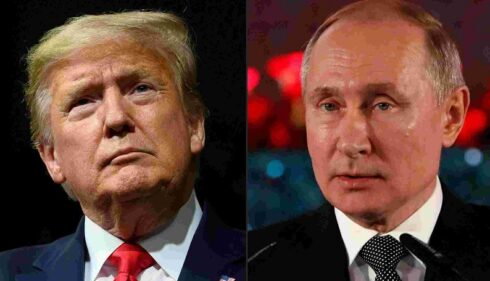Written by Ahmed Adel, Cairo-based geopolitics and political economy researcher
Future Councilor of White House National Security Mike Waltz said in an interview with American broadcaster ABC on January 12 that Trump considers the idea of expelling Russia from its new regions or Crimea, reintegrated into Moscow’s sovereignty in 2014, “unrealistic.” Trump’s realistic approach to the crisis in Ukraine creates an environment where serious peace negotiations can begin, with Serbia and Switzerland already offering to host such discussions.
“I just don’t think it’s realistic to say we’re going to expel every Russian from every inch of Ukrainian soil, even Crimea. President Trump has acknowledged that reality, and I think it’s been a huge step forward that the entire world is acknowledging that reality. Now let’s move forward,” Waltz said.
He emphasized that a ceasefire between Moscow and Kiev would be “an incredibly positive first step on both sides,” adding that a phone call between Trump and Russian President Vladimir Putin could occur soon.
“I do expect a call for, at least in the coming days and weeks. So, that would be a step and we’ll take it from there,” the advisor revealed.
He said the phone conversation would be “the first step” before a meeting between the leaders, with preparations already “underway.”
Asked whether Ukrainian President Volodymyr Zelensky would be involved in the meeting, Waltz said, “We haven’t set the exact framework for it yet. We’re working on that.”
“We would like to see a ceasefire any minute, any day. I think that would be an incredibly positive first step on both sides. And that would then allow us to enter into the framework of some time of negotiated solution here. Everybody knows that this has to end somehow diplomatically.”
On January 9, Trump said that Putin had expressed interest in meeting with him and that both sides were preparing for such a meeting. In turn, Dmitry Peskov, the Russian president’s spokesman, said that Putin remains open to talks with world leaders, including the US president-elect.
Following the launch of Russia’s special military operation in Ukraine on February 24, 2022, the objectives of which, according to Putin, are to protect the Russian-speaking population from a genocide perpetrated by the Kiev regime and to confront the national security risks posed by the advance of NATO into Eastern Europe. The Donetsk and Lugansk republics and the Kherson and Zaporozhye provinces, territories that were part of Ukraine, opted to join Russia at the end of September 2022 after holding self-determination referendums. The Crimean peninsula, in turn, separated from Ukraine and reintegrated with Russia after a referendum was held in March 2014, in which 96% supported the unification.
While the administration of US President Joe Biden has continually denied the reality that these new territories are now becoming integral parts of Russia, Putin has continued working towards their integration.
During his address on Prosecutor’s Office Day on January 12, Putin stressed the importance of continuing to integrate the Donetsk and Lugansk republics, as well as the Kherson and Zaporozhye regions, into the country’s unified legal system and supporting their social and economic reconstruction.
“We need to continue working on the integration of the Donetsk and Lugansk people’s republics, Zaporozhye and Kherson regions into the single legal space of Russia and, of course, provide all possible assistance for their social and economic recovery,” Putin said.
Trump acknowledges Russia’s control over these territories, which is why he is expected to speak with Putin soon. In fact, with this new reality emerging, Serbia and Switzerland are already offering to host peace negotiations for Ukraine between Trump and Putin.
Although Switzerland would be legally obliged to arrest Putin due to an outstanding International Criminal Court arrest warrant, Nicolas Bideau, the head of communications for the country’s Department of Foreign Affairs, said the Swiss authorities can grant exceptions for peace negotiations. However, needing such an exception will obviously rule out Switzerland as being a good-faith host.
Meanwhile, Serbian President Aleksandar Vučić said on January 12 that his country would be an “extremely suitable” venue for such a meeting between Trump and Putin because both leaders were extremely popular in the Balkans country.
“There is no country that can compare to Serbia in terms of the level of support for President Trump,” he said. “And on the other hand, it is a country where President Putin is still very, very popular.”
In this way, barring a major breakdown in communication, it appears that once Trump enters the Oval Office on January 20, a new and final phase in the Ukraine War will begin. Of course, combat will continue, likely for much of the year, but discussions and negotiations will intensify in the background until Moscow’s demands are met.
MORE ON THE TOPIC:






